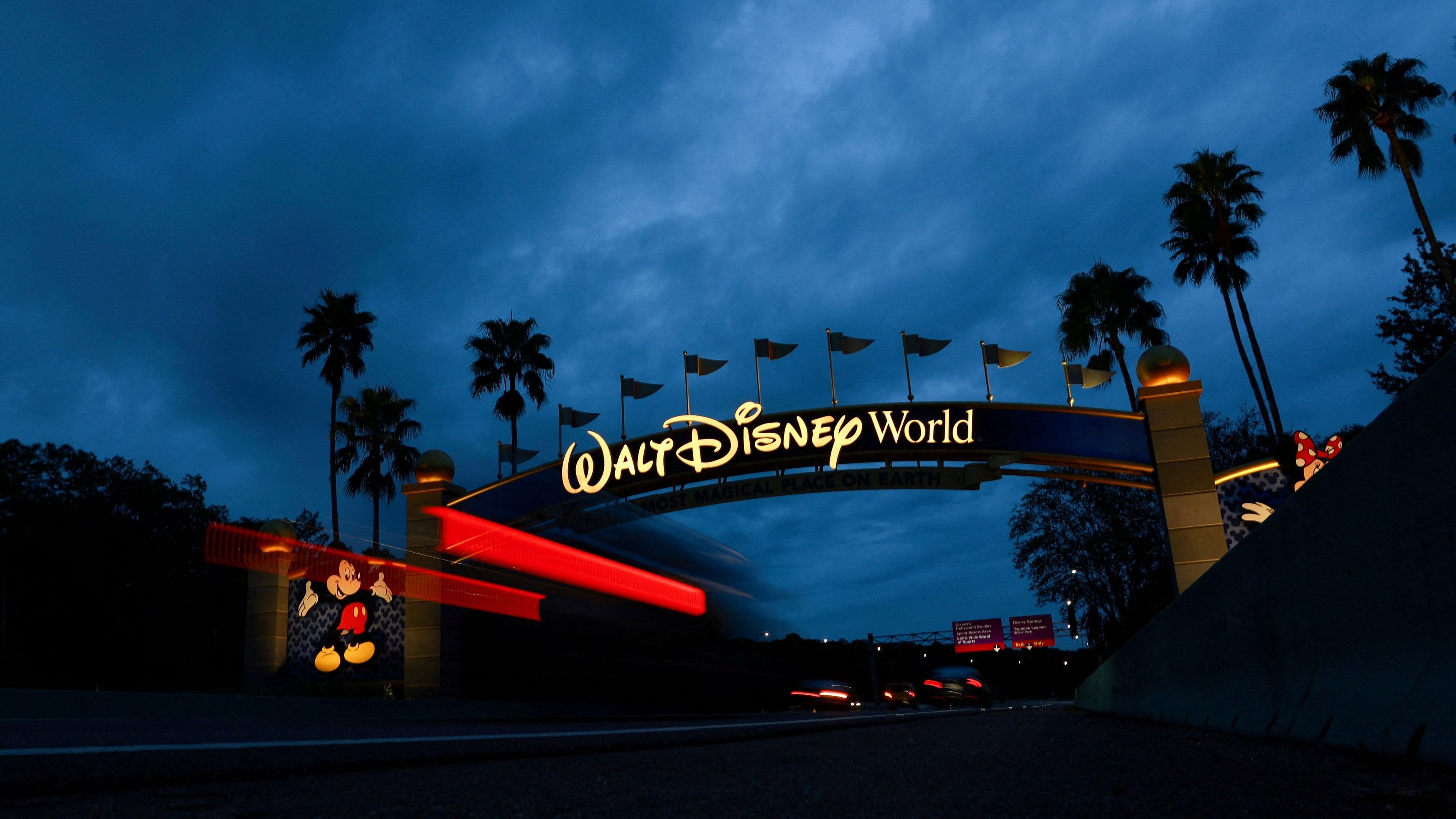
A Walt Disney World entrance sign is seen before the arrival of Hurricane Milton, in Orlando, Florida, US, October 8, 2024.
Credit: Reuters Photo
By Beth Kowitt
The weather has long been a favorite scapegoat of executives trying to explain disappointing earnings. Customers shying away from buying new clothes? It’s the long, hot summer. People drinking less beer than expected? Blame it on rain during the Euro Cup. Consumers not booking vacations? The heat wave is keeping would-be travelers at home.
But as weather has turned more extreme, it’s no longer just a convenient scapegoat — it really is the problem. Look no further than the destruction wreaked by Hurricane Milton, which forced Walt Disney Co. to close its theme parks in Florida this week. It’s reportedly only the 10th time in a half century a hurricane has shut down Disney World.
The monetary impact for Disney will be real and considerable. Bloomberg Intelligence’s Geetha Ranganathan estimates the park closures could mean a hit of up to $200 million in revenue and $125 million in operating income for Disney during its current fiscal quarter. And the effects will linger long beyond the immediate aftermath of the storm; Milton could lower US attendance at Disney’s parks during the period that closes at the end of the year by an estimated 4 percentage points, according to Goldman Sachs.
The historical data that analysts can point to for context are starting to pile up. In 2017, Hurricane Irma cost the company $100 million in operating income when it closed the parks for two days, cutting into US attendance in the quarter by about 3 percentage points, according to Goldman Sachs. Hurricane Ian led to another two-day closure in 2022 and a $65 million drag. (This time the closure lasted a day and a half; Disney reopened most of its park operations Friday.)
But as theme parks have become an increasingly important part of Disney’s business, the stakes have gotten higher. The experiences division, which includes Disney World and the other parks, generates about a third of the company’s revenue but two-thirds of its profit. Last year, Disney said it would nearly double its spending on the business, which has been fighting softening consumer demand due to inflation, to about $60 billion over the next decade.
This is playing out in Florida, where Governor Ron DeSantis has made Disney the poster child of his crusade against “woke capitalism.” He’s turned the state into the hub of the anti-ESG movement, decrying companies’ environmental, social and governance initiatives as merely a way for them to impose their left-leaning agendas on the rest of society. “We want them to act as fiduciaries. We do not want them engaged on these ideological joyrides," DeSantis said last year when he signed an anti-ESG bill that went farther than any other state’s.
Disney’s punching bag status for Republicans on an anti-ESG crusade has spread beyond the state. When Disney acknowledged in its 10-K filing last year that one of the risks to its brand was consumers’ perceptions of its position on the environment and social issues, Oklahoma Treasurer Todd Russ pounced on it as evidence to support Oklahoma’s own anti-ESG law. “Disney is a great example of how putting ESG policies over investor earnings is bad for business and doesn’t belong in this arena,” Russ said.
But as Hurricane Milton shows yet again, climate change is bad for business — and companies do have a fiduciary responsibility to combat it. Disney is taking steps in that direction with efforts like pledging to reduce absolute emissions from its direct operations by nearly 50% and to purchase or produce only zero-carbon electricity by 2030.
This is ESG’s true purpose — not a PR move to paint a brand as a corporate do-gooder, nor an attempt to impose some kind of social agenda. It’s a strategic decision and business imperative to protect a company’s assets and its future.